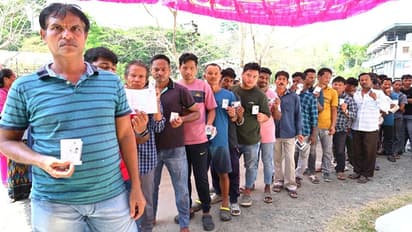Lok Sabha Elections 2024: Did you know 48,103 contested as independent in Lok Sabha polls since 1951?
Published : Apr 20, 2024, 12:16 PM IST
In the 17 Lok Sabha elections held between 1951 and 2019, a total of 48,103 independent candidates have tried their luck but only 234 managed to make it to the House, while at least 47,163 lost their deposits.
Stay updated with the Breaking News Today and Latest News from across India and around the world. Get real-time updates, in-depth analysis, and comprehensive coverage of India News, World News, Indian Defence News, Kerala News, and Karnataka News. From politics to current affairs, follow every major story as it unfolds. Get real-time updates from IMD on major cities weather forecasts, including Rain alerts, Cyclone warnings, and temperature trends. Download the Asianet News Official App from the Android Play Store and iPhone App Store for accurate and timely news updates anytime, anywhere.
